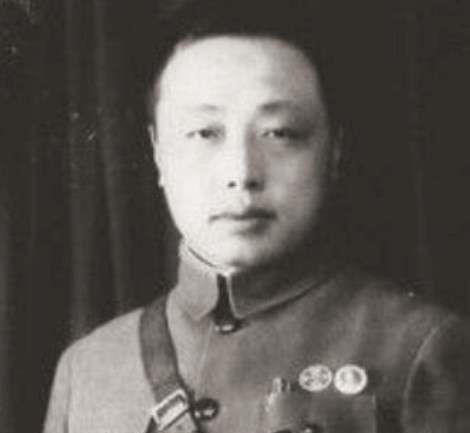On February 24, 1905, Wang Tiehan was born in Panshan, Liaoning Province, to an ordinary peasant family, and his parents could only barely maintain food and clothing through daily hard work. It is said that such a family situation has no spare money for Wang Tiehan to study, but his father still gritted his teeth and sent him to the school. Wang Tiehan cherishes the hard-won learning opportunities, reads very hard, and is smart since childhood, so his results are very good. In 1920, at the age of 15, Wang Tiehan was admitted to the preparatory department of Peking University, and the cost was even greater, and after two years, the family could not move, and Wang Tiehan had to drop out of school.

After returning to his hometown, Wang Tiehan joined the Northeast Army and was successfully admitted to the Army Of the Three Eastern Provinces, where he served in the Northeast Army after graduation. At that time, there were not many people in the Northeast Army who were both literate and military-aware, so he was highly appreciated by his superiors and promoted rapidly, and in 1931 Wang Tiehan was appointed colonel of the 620th Regiment of the Independent 7th Brigade, when he was only 26 years old. On the night of September 18 of that year, the Japanese army, which had been eyeing the Northeast Tiger, suddenly shelled the North Camp and blew up the wall to attack the Northeast Army.
It was the Independent 7th Brigade stationed in the North Camp, with a total of more than 8,000 people in 3 regiments under its command, while the attacking Japanese army was only more than 500 people. At that time, the brigade commander of the 7th Brigade, Wang Yizhe, went out to relieve the flood, and the chief of staff who stayed behind, Zhao Zhenfan, sent a telegram to the headquarters of the Northeast Border Defense Army in Shenyang City to request instructions, and the reply was: "No resistance is allowed, put the gun in the warehouse, everyone stands up to death, and serves the country to become a benevolent person." At the same time, he also repeatedly and strictly ordered that "no one who enters the barracks is allowed to shoot back, and whoever causes trouble is responsible." ”
In this way, the Japanese army easily rushed into the north camp and carried out a bloody massacre of the officers and men of the 7th Brigade who laid down their weapons, and many soldiers were killed by the Japanese with bayonets. Seeing his compatriots fall one by one under the bayonets of the Japanese Kou, Wang Tiehan could not contain the grief in his heart and shouted: "Brothers, take up the gun and fight with the devil!" Seeing the regimental commander speak, nearly 3,000 soldiers of the 620 regiment took up arms and opened fire on the Japanese army, killing and wounding dozens of Japanese in an instant, and Wang Tiehan took the opportunity to lead his men to rush out of the north camp. On this humiliating night, only the 620 regiments of the three regiments of the 7th Independent Brigade resisted in the real sense, and the casualties were also the smallest in the whole brigade, so Wang Tiehan was also known as the person who fired the first shot of anti-Japanese resistance.
After leading his troops out of the North Camp, Wang Tiehan had been worried that he would be punished for disobeying military orders, but nothing happened, and the headquarters of the Northeast Border Defense Army neither punished nor commended him. After that, Wang Tiehan led his troops to continue to fight against the Japanese on the battlefield, and successively participated in the Great Wall War, the Battle of Songhu and the Battle of Xuzhou, and was promoted to the commander of the 47th Army because of his military achievements. In April 1948, Wang Tiehan and Ma Zhanshan returned to The North Camp, and the scenes of the past 17 years ago came to mind, and he said to Ma Zhanshan sadly: "At that time, there were only a few hundred Japanese koos, but we had 8,000 people. But the top didn't even let me fight! As a result, the devils were swept into the guanli step by step! You say miserable or not? Miserable or not? Speaking of this, he suddenly lost his voice and cried bitterly, and Ma Zhanshan and others also shed tears. In 1995, Wang Tiehan died of illness in Taiwan at the age of 90.